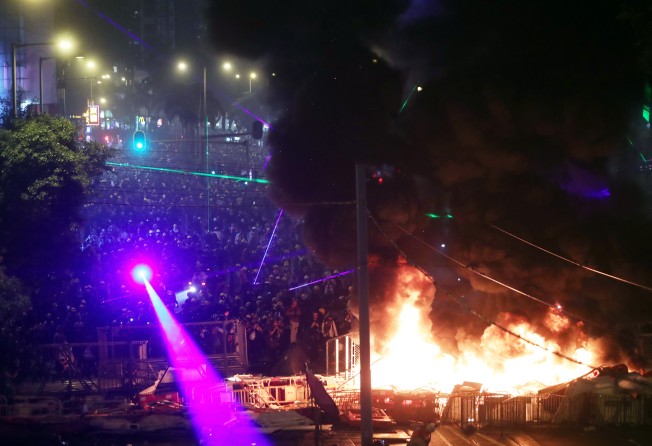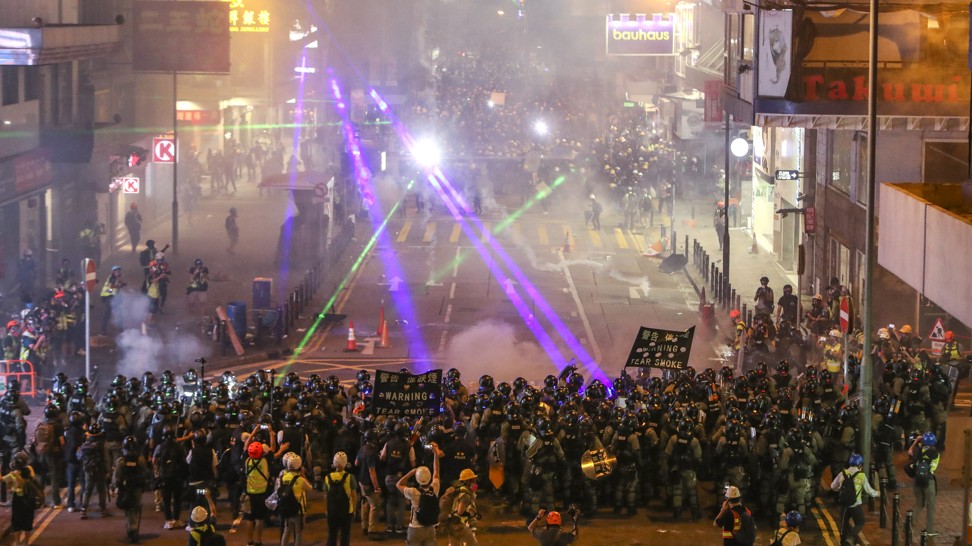China opts for low-key coverage of Hong Kong extradition bill withdrawal
- Comments and hashtags disappear as the authorities muffle backlash after weeks of rhetoric
- One analyst says that Beijing is worried about mainland citizens believing that protests can achieve results

Beijing has kept a tight grip on coverage of Hong Kong Chief Executive Carrie Lam Cheng Yuet-ngor’s decision to withdraw the city’s extradition bill, focusing on the need to restore order and economic development in Hong Kong.
Observers also noted that none of the central government agencies with responsibility for Hong Kong – the Hong Kong and Macau Affairs Office, the foreign ministry commissioner’s office and the central government’s liaison office in Hong Kong – have made statements since Lam’s remarks. This is in contrast to their immediate responses after she announced the bill’s suspension on June 15.
A Hong Kong government source said this was because the suspension was a major decision but Wednesday’s announcement was more procedural.
“Unlike [the suspension decision], the withdrawal of the bill only involves procedural matters. This is why the central government agencies did not issue statements about the latest move,” the source said. “There is no need to read too much into it.”
The low-key approach was reflected in official media, including People’s Daily and Xinhua News Agency, which all had measured coverage of the news on Wednesday. China Daily , which mainly caters to a foreign audience, carried an editorial on Wednesday night with the headline: “HK protesters now have no excuse to continue violence”.
On its nightly prime-time news programmes, state broadcaster CCTV aired interviews with Hong Kong businesspeople and pro-Beijing lawmakers who urged the city government to end the chaos and clamp down on violence by the protesters, adding that authorities needed to address social issues such as Hong Kong’s high property prices.
But there was a flurry of online outrage – and censorship – after the broadcast of Lam’s five-minute announcement just before 6pm (6am, US Eastern time).
The government doesn’t want mainlanders to think that protests can work and that they are prepared to concede to the demands of protesters
The broadcast led to a flood of angry comments from mainland internet users, many of whom were disappointed by the decision to withdraw the bill, an act they claimed amounted to giving in to the protesters.
“What was she doing, proposing the bill when the time was not right? Now even if the mess is cleared, the problem still won’t be solved,” one commenter said on the Weibo account of Hong Kong newspaper Wen Wei Po .
But by around 8pm, most of the comments were gone from accounts on the Twitter-like Weibo platform, including those registered to high-profile state media outlets such as the Global Times and The Beijing News .
Gone, too, was the popular hashtag, “Carrie Lam formally withdraws the extradition bill”.
On Thursday, the word “withdrawal” was the third most censored term on Weibo, according to Freeweibo.com, an independent website that monitors posts taken off Chinese social media networks.
Analysts said the clean-up was to allow the authorities to divert public opinion and minimise public criticism.
Fergus Ryan, a Chinese cyber analyst at the Australian Strategic Policy Institute, said the sudden move by “Beijing’s propagandists would likely be causing whiplash among nationalistic readers who have been ginned up by the state media’s hardline rhetoric over the past few weeks”.
“But Beijing is likely calculating that it’s best to censor discussions of the news lest the criticism suddenly becomes directed at them,” Ryan said.
“The government doesn’t want mainlanders to think that protests can work and that they are prepared to concede to the demands of protesters.”

Yik Chan Chin, a professor of media studies at Xian Jiaotong-Liverpool University, said that while many people on the mainland were unhappy with the concession, opinion was far from unified, even among mainland intellectuals and academics.
Chin also said that the silence from the central government agencies might have been a show of support for Lam.
“Some people, probably from the Hong Kong side, are guessing that Carrie Lam made this decision to show that she can make decisions independently,” Chin said.
“If Carrie Lam wants to demonstrate her autonomy in decision-making, the central government may be signalling that they want to let her decide what is most suitable for Hong Kong at the moment, so there is no need for them to make a comment unless the situation gets worse.
“One reason why they suppressed Weibo comments is because they don’t want to embarrass the chief executive, as a lot of mainland netizens may attack her. On the mainland, things are very emotionally charged and high-profile voices are calling for a hard rather than soft stance on Hong Kong.”